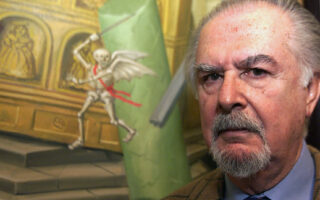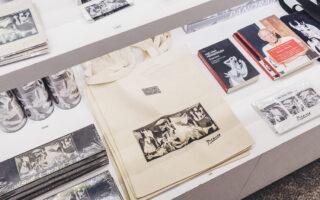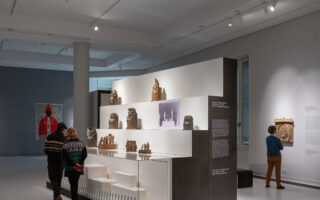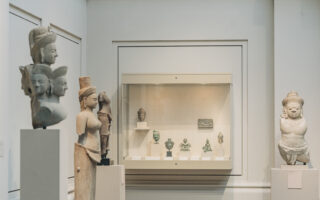Where are the big ideas?
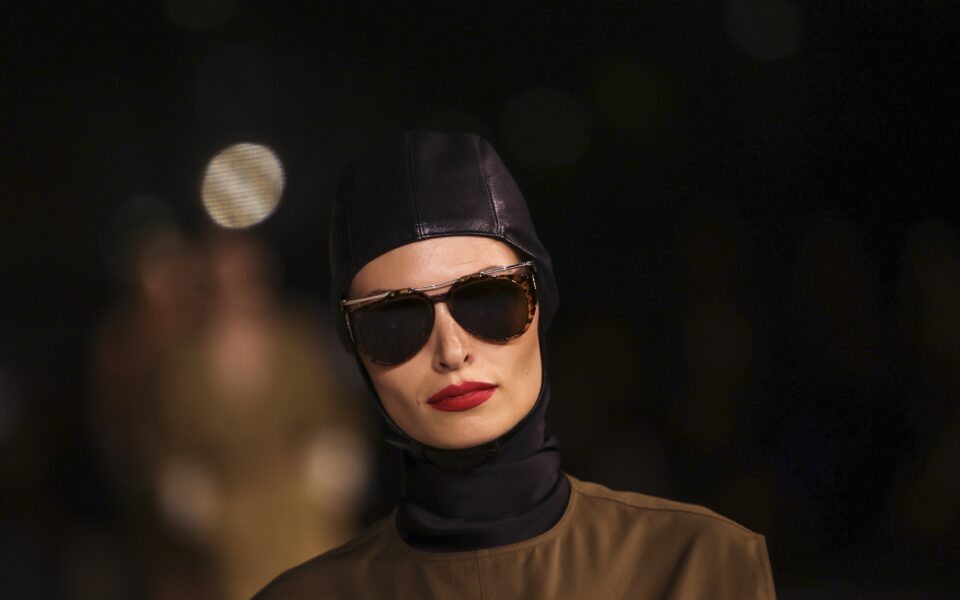
PARIS – In the middle of the Champ de Mars, not far from the foot of the Eiffel Tower silhouetted in the evening sky like a power postcard, Anthony Vaccarello of Saint Laurent constructed a monumental faux-marble platform, the better to showcase his spring collection. Austin Butler arrived and embraced his “Elvis” director, Baz Luhrmann, who was sitting next to Anna Wintour. Hailey Bieber posed with Kate Moss. Smartphones flashed. On the sea of grass below, a sea of onlookers gawked.
Yet sometimes the bigger the brand, the more grandiose the scenography, the higher the celebrity wattage, the smaller the ideas. Or so it seemed as Paris Fashion Week began.
After all, what appeared in the shadow of the Eiffel Tower as dusk fell, despite the fabulous framing, was essentially 49 shades of flight suit.
There were flight suits with big patch pockets, strong shoulders and cinched waists; strapless flight suits; flight suit cargo pants with sheer leotard tops; flight suit shirtdresses; tank tops (the kind you wear under a flight suit) cut slightly longer, so they became a mini dress; and cloudlike mousseline in the same color as a flight suit.
The reference and the palette was Yves Saint Laurent’s safari collection of 1967; the muse was Amelia Earhart. If she had landed her plane at Le Bourget airport just outside of Paris, accessorized and went straight to Raspoutine for a martini, this is exactly how she might look. But strip away the needle-sharp stilettos, the leather gauntlets and aviator caps, the shades and chunky gold jewelry – take away the très chic styling – and what remains is still a jumpsuit.
Granted, it was beautifully cut; both more covered up and utilitarian than usual for Vaccarello’s Saint Laurent. And there’s no question that sometimes it’s hard not to read the news of the day and think that taking off and escaping to parts unknown is exactly what you need. That less is liberating. But even so, you’d probably want more than one outfit in your luggage.
As it happens, there were a few at Dior, though they were hard to see through the bells and whistles of the set. Maria Grazia Chiuri had enlisted Italian artist Elena Bellantoni, who is firmly in the Barbara Kruger/Jenny Holzer school of contemporary art, to create a video installation that circled all four walls of the temporary Dior megalith in the middle of the Tuileries Garden.
“Barbie”-centric neon pink and yellow gave way to advertising photos of stereotypical babe-like women that were juxtaposed against messages such as “No-body is yours; No-body is perfect,” “Reverse the mirror, subvert the rules” and “Liberation of bodies is not commercial liberalism.” (The irony of the latter being used at the behest of one of the biggest commercial entities in luxury does not seem to have occurred to anyone.)
In a preview, Chiuri said the point was that we are so inundated with images in the constant stream of our digital lives that we forget to interrogate what we see, and the images (and what they represent) become absorbed into our consciousness and form our opinions without us even realizing it, creating the messy world in which we now live. It is important, she said, to step back and confront those received conventions.
Which in her case, translated as confronting the idea that Dior, or the Dior woman, was merely a Bar jacket and a New Look skirt. Instead she offered terrific crisp shirts wrenched to the side to show a shoulder (inspired by an archival 1948 design) or cut with only one sleeve, paired with cool monochromatic tailored separates – jackets, skirts and pants – silk screened with X-ray photographs by Brigitte Niedermair of the (yes, again) Eiffel Tower, or blurry maps of Parisian streets.
Lace woven with sorcerer’s symbols like the moon and stars made up loose, almost Victorian dresses that teased the body beneath – now you see it, now you don’t; fishnet dresses and skirts were paired with fuzzy knits and leather motorcycle jackets; ribbed knits were speckled with ghostly moth holes; and denim was charred at the hems, as if it had been rescued from the stake.
The familiar, going up in flames, is a powerful suggestion, but it was subtly made – as was the collection as a whole. Maybe too subtly. Chiuri’s subversion is in the details. Her rebellion is less in the overt feminism she espouses in her collaborations, which is really just candy for the smartphone set, and more in the way she insists on the wearability of a pleated skirt, and then weaves witchcraft into the weft.
Perhaps that’s the bargain with the devil that designers need to make right now: easy-to-sell clothes that don’t really challenge preconceptions, just nudge them slightly onward, but are themselves dressed up with enough peripheral pizazz to explode through the small screen.
But who, really, do such unbalanced ambitions serve? Once upon a time Dior upended all ideas of what women should wear and caused a scandal in Paris; once upon a time Saint Laurent’s collections regularly sent editors into conniptions, they were so shocked out of their comfort zones by what they saw. Both designers changed how women dressed – how women expressed themselves and claimed their place in the world – forever.
This may be an anxious, risk-averse time. But maybe that’s actually the perfect time to do it again.
This article originally appeared in The New York Times.


